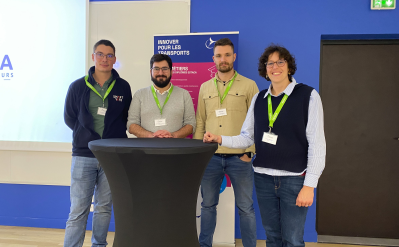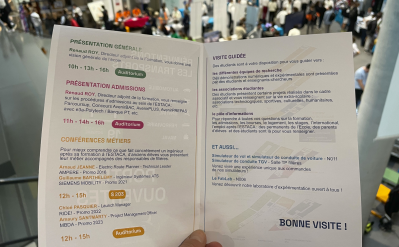News

FlexHALE: A Green Revolution in Aeronautics
ESTACA takes part in the FlexHALE Project accepted by ANR
ESTACA joins the FlexHALE project, recently accepted by the French National Research Agency (ANR). This project marks ESTACA's first collaboration with the ANR, and represents a significant step forward for the school and for the aeronautics industry.
FlexHALE: A Green Revolution in Aeronautics
FlexHALE, an acronym for "Flexible High-Altitude Long-Endurance," is a major project to develop next-generation solar-powered drones as an environmentally-friendly alternative to traditional satellites. These pseudo-satellites serve the same purpose, but have almost unlimited endurance and require much less energy to put into orbit. They also outperform conventional satellite models in terms of positioning flexibility, area persistence and repairability. Their wings need to be large to allow flight in rarefied air and efficient capture of solar energy, but also light for propulsion purposes. Their size and flexibility make them sensitive to aeroelastic instabilities and tend to destabilize their flight.
Designing such a drone remains a major technological challenge.
A Prestigious andPioneeringCollaboration
The FlexHALE project is supported by a consortium of five partners, including ESTACA. CREA, QUARTZ, d'ALEMBERT and INRIA are the other members of the consortium. While this collaboration is the first of its kind for the school, it is the fruit of a fruitful and ongoing collaboration begun in 2019 by Julien Brocail, a teacher-researcher at ESTACA since 2012. It marks recognition of the innovation and expertise of ESTACA's laboratory, and paves the way for new development opportunities in the field of aeronautics and ecological transition.
A long-term project
The FlexHALE project will start at the beginning of 2025 and run for 48 months. This will enable researchers from ESTACA and their partners to carry out joint studies to address the issue of UAV instability.
A Significant Contribution to Research and the Environment
The FlexHALE project aims to meet technological and environmental challenges by using renewable resources and reducing greenhouse gas emissions. This approach is an integral part of ESTACA's DNA, whose aim is to promote sustainable, environmentally-friendly solutions.
















No comment
Log in to post comment. Log in.